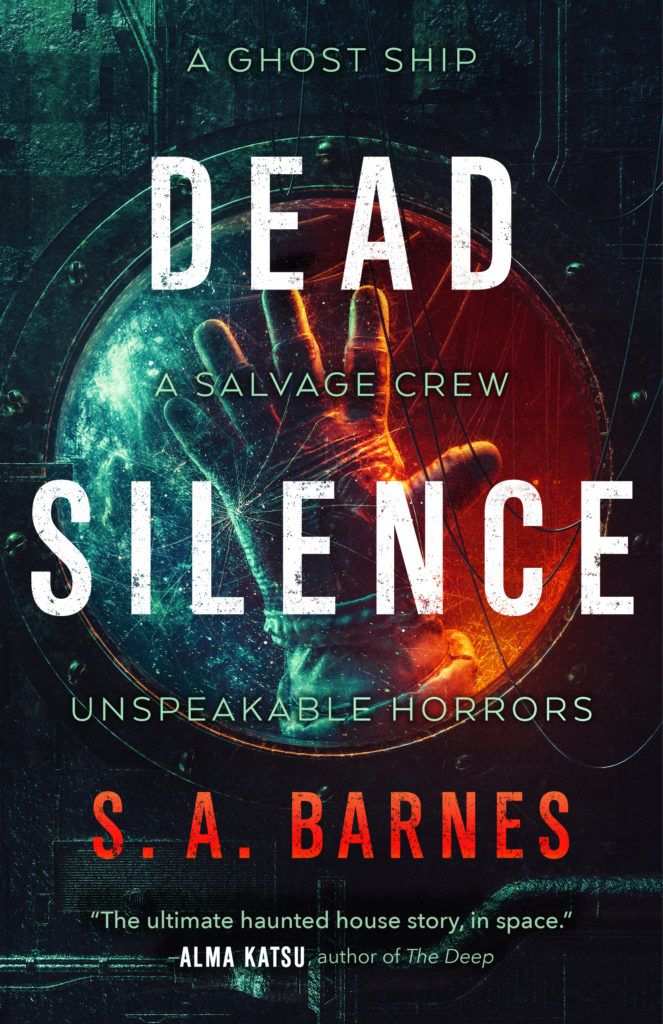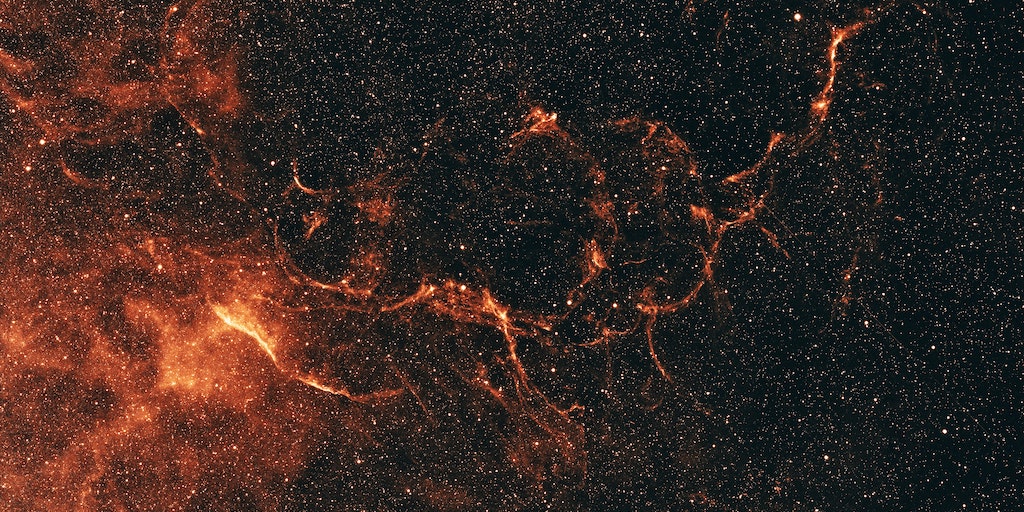Last spring, someone expressed a controversial opinion on Twitter and the entire world exploded in flames. To be fair, I’m being a little hyperbolic, but in this case, it wasn’t far from the truth—at least in the collective science fiction and horror communities.
Here’s what the tweet said: “Horror cannot be set in space.”
Right? I’m assuming your mouth dropped open in shock, as mine did.
I’m not going to reference the original account, as the author has already expressed that her tweet was intended to be part of light-hearted conversation with a friend in real life and it blew up her mentions for the better part of a month with nastiness. (If you want to find the start of it all, you can do so under the hashtag #spacehorror.)
However, you can imagine my particular surprise upon learning of this tweet, given that I’d not only recently written a space horror novel, Dead Silence, but was—and still am—on track to see it published this coming February by Nightfire, Tor Books’ new horror imprint. Horror, not Science Fiction.
Also, there’s the entire Alien/s franchise, Event Horizon, Pandorum, Sunshine, The Europa Report, and others I’m probably missing. Pretty impressive for something that’s not supposed to exist.
After swimming through the countless shocked and furious replies, I decided to delve deeper into the context of the original tweet. (Generally speaking, I’ve found that “nuh-uh” isn’t the strongest form of counterargument.)
The author’s position was, essentially, that horror stories set in space should ultimately be viewed as science fiction. Horror is about the introduction of unfamiliar or unknown into the familiar/known and space is, in and of itself, unfamiliar and unknown. Therefore, stories set in space cannot be horror because there is no “familiar” as a starting point.
And… I agree.
Before you write me shocked and furious comments or emails or, God forbid, tweets, please let me explain. Obviously, I think space horror exists. I do think horror can and should be set in space.
However, when I took the time to consider her argument, I could see her point. She’s right—obviously—in that horror is the introduction of the unfamiliar into the familiar. And, taking it further, many horror settings are not just familiar but beloved. Safe.

Your long-time summer camp. Your college campus. Your own home. Your school.
Part of horror is seeing that safety ripped away and our protagonist’s reluctance to surrender that notion of a safe place, even at the risk of their lives or the lives of others. That’s why we’re always shouting at the protagonist not to go into the basement, right? We recognize the danger, even if they don’t.
Side note: Humans are actually terrible at recognizing danger in real life, as I’ve learned from my active-shooter training for school. We talk ourselves out of something that “might be” gunfire because it’s so far out of the norm for our daily lives in that location, even though we know—realistically and statistically—it’s a possibility. Our brains sort of panic and flail and hesitate too long.
Space, by itself, is still horribly unpredictable and dangerous. It wasn’t that long ago that a mission to Mars failed because one part of the project team failed to convert a measurement from meters to feet. I mean, we’re getting better, but we’re not awesome at this yet. Successful launches still make the news.
There’s nothing familiar or safe about space. Not yet.
So why set horror stories there?
Lisa Cron in her books Wired for Story and Story Genius talks about why stories—movies, books, tv shows, podcasts, whatever—have continued to exist as an art form. We, as humans, learn from stories. Not in a moralistic or preachy way necessarily, but in a “the best berries are by the big tree to the west, but don’t take the shortcut past the dark cave that smells like bear because here’s what happened to Chuck and Betty” sort of way.
We learn vicariously as a survival technique. That, I believe, is especially true for horror. Don’t go into the basement, unarmed, when you hear the creepy sound. Don’t trust that handsome but extra-pale stranger who can’t stop staring at your neck.
But what does that mean for space horror?
Here’s the thing—when you look at the most popular examples of the genre in movies, for example, they generally have one thing in common: they look to a future, near or far, where space is normal.
In these movies, people are living and working in space and it’s not a big deal. It is familiar, it is safe—as safe as anything is. Space is no longer the area of specialists and experts, scientists, physicists, and engineers. It’s full of miners, colonists, tourists, soldiers, and the equivalent of long-haul truckers.
In my book, Dead Silence, my main character is the team lead for a beacon repair crew. Linnea Sinclair, my critique partner, likes to joke that it’s my “Xfinity repair guys in space” book. She’s not wrong.
Space, for the characters in a space horror story, is nothing special. And what I love about that is, frequently, the dangers in space horror are the same dangers we may encounter in our lives here. Overly ambitious humans, greedy corporations, reckless disregard for life, arrogance in thinking we know it all.
To my mind, the aliens in Aliens are just doing what they are biologically driven to do. Feed, reproduce, protect their young. Paul Reiser’s character is the real baddie.
Space horror exists because it offers us the needed opportunity to still learn about those daily dangers—on a more metaphorical level. We aren’t bumping into chest-bursters on a regular basis, but I bet most of us have had a shady co-worker willing to throw us under the bus.
But I suspect space horror also seeks to remind us that no matter how advanced we get as a society, we must keep in mind the lessons of the past. We are still flawed, still arrogant, still greedy, sometimes still our own worst enemies. If we’re to have any chance of progressing to a society where space is the norm, we’ll need to be aware of those propensities.
And that is why horror absolutely can and should be set in space, why space horror definitely exists. It’s both a beacon of hope for us as a future space-faring species and warning for us to not forget where we came from.
apple
apple
apple
Pre-order Dead Silence now:
Apple | Bookshop | Amazon | Barnes & Noble | IndieBound
And read the first two chapters here!




Thank you for the great article! I’ve been considering a few novels about a small group navigating an unfamiliar area of space and encountering bone-chilling terror. I’m always up for new space horror so I’ll be sure to read Dead Silence!